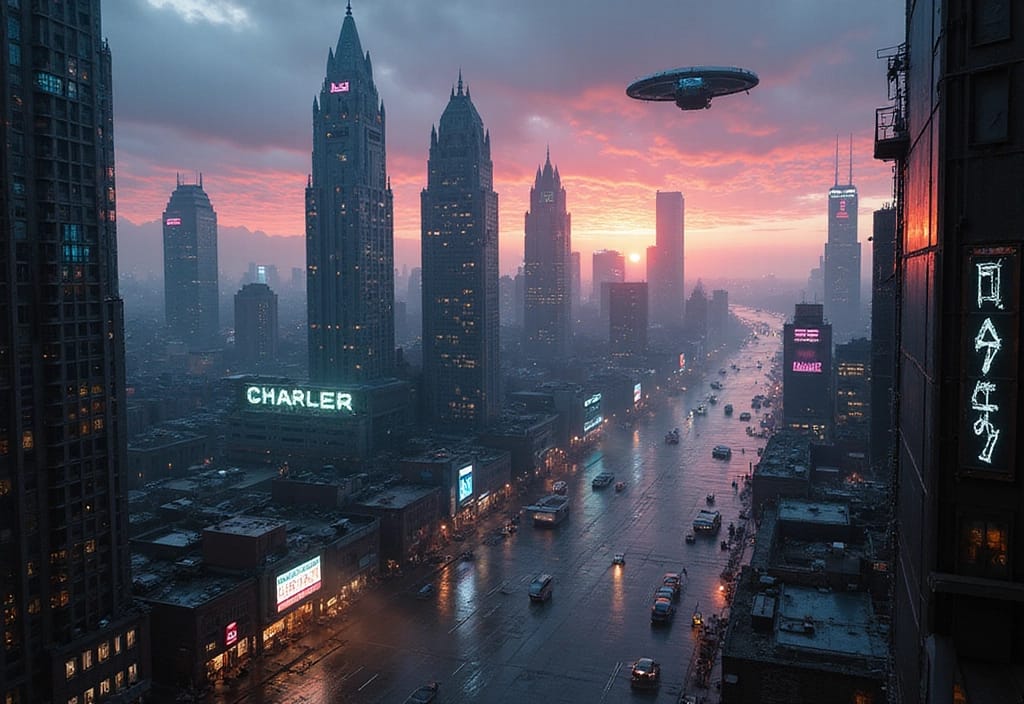
Sector 1 - Axis
Abdullah Al Hakir
“Come on!” Eddie Boleman shouted, pumping his palm against the metal bench press. “You got this! Come on!”
Abdullah strained his muscles, blowing air in a tight stream through his lips. The weight bar moved up an inch and then stopped. It felt like he was pushing against a brick wall. He could feel the blood pumping through his skull, making him lightheaded.
All of his attention was on the weight, straining through his energy reserves and willing it to move. He grunted with exertion and pushed.
It didn’t budge.
“Come on, Goddamn it!” Eddie growled, leaning over the bar. He looked angry and frustrated. And he wasn’t even the one trying to lift the damn weight! “Lift the damn thing!”
Abdullah struggled for a reply. Something like ‘How stupid can you be to think that helps?’ or ‘Shut up, moron.’ Something clever. Instead, he groaned in exhaustion, which didn’t have quite the same impact.
The weight bar slipped an inch lower and his arms threatened to give way. That vein in my forehead is going to explode, he decided. Blood will start spurting, and everyone will run away screaming. Then I’ll drop the bar on my neck and suffocate. And Eddie will finally stop bugging me about always going to the damn gym.
But no blood spurted out. Nor did the bar move. Abdullah groaned through the fog that was his mind. An eternal second slipped past…
And that was it: The heavy bar plummeted down, thudding hard against his chest and knocking the last bit of air free. Eddie was slow in catching it.
“Damn,” Eddie muttered, helping to lift the bar off his bronze-skinned friend. “I thought you had it that time.”
Abdullah drew in a ragged breath, then another. It hurt. His heart had climbed up into his head and was working to punch its way loose.
“So, did I,” he managed to gasp, sitting up. The world spun in confused circles before reorienting. “But my arms disagreed.”
“You were so close.”
“If by ‘close’ you mean ‘never stood a chance,’ then yes. Yes, I was,” Abdullah said. He accepted the offered towel and wiped sweat from his face. His arms were tight, on the verge of cramping.
“One more set?”
Abdullah stared at Eddie like he was crazy. Eddie raised his hands in surrender. “Okay, okay. How about we get lunch instead?”
“Sure,” Abdullah agreed. Eddie lifted Abdullah to his feet by his left arm like he was a pillowcase instead of a one-hundred-kilogram man. Eddie was twenty-two, several years younger than Abdullah, still enjoying the boisterous energy of youth.
His real name was Alonso Edward Boleman the Third. He was a trust fund baby with golden locks of hair and a smile that melted girls’ clothes off. His body was rippled with muscles, and his eyes were an intense shade of green.
Those were good reasons for hating Eddie. The problem was, Eddie was also one of the nicest guys Abdullah had ever met, friendly and outgoing.
Abdullah was a few inches shorter than Eddie, and his body was built stockier. He had to work to keep himself in shape. If he even looked at food too long he gained weight.
And it didn’t go to his arms or legs but settled right in his abdominal region. He shaved his head in anticipation of the receding hairline his grandfather left him, and his eyes were plain charcoal. Walking anywhere with Eddie was equivalent to being invisible.
Eddie was his closest friend. He had abandoned the life of privilege to join the military, planning to earn everything.
Abdullah finished wiping off his face and checked his watch. Late morning still. Normally, he would be on duty this time of day, guarding the armory. But, after Captain Schmidt died, they were all given a few weeks of leave to relax.
It had gone past the point of being a pleasant vacation. Abdullah had run out of things to do.
“How long do you think it’ll be until we get moving again?” Abdullah asked. His nerves were settling back down. His muscles had set into a dull ache of mixed pleasure and pain.
“Another week at least,” Eddie replied.
“Another week?” Abdullah asked incredulously. He had to remind himself that Eddie was only guessing. There was no official word from higher up about when Denigen’s Fist would start out on its patrol routes again.
He hoped like hell that Eddie was wrong: another week of downtime would have him rocking quietly in his quarters muttering about potatoes.
They walked through the second-floor gym, heading to the exit. They passed by various pieces of shoddy or well-used gym equipment. This was an enlisted soldier’s gym, which meant that it wasn’t well taken care of or cleaned despite being one of the busiest on the ship.
The entire room smelled of stale sweat and body odor. It was mostly empty and had been since leave started. Most of the crew were down on Axis partying and blowing their hard-earned cash on alcohol.
“You really think it will be that long?”
“At least,” Eddie said. He waved his hand in front of the sensor, and the door sprang open. They strode into the silver and white hallway. “They still have to do the Pass of Command ceremony. And that’s only after they pick the new Captain.”
Abdullah groaned. Eddie smirked and kept walking.
The Central Walkway stretched off in both directions, running the length of the ship on all floors with various elevators for the crew to move up and down. Right now, the two men were near the middle, one level above the engines and two levels below the midshipmen crew quarters.
Normally, the CW would have been packed beyond capacity and they would be swimming through a sea of bodies. Engineers, enlisted men, soldiers; all of the lowest level crew used this hallway to go about their daily lives.
That meant a good twenty thousand crew shared fifteen percent of the ship’s space. That was when Denigen’s Fist was at half capacity. Abdullah was terrified that the ship’s budget would grow and they would hire on the rest of the crew.
About half a kilometer farther down the CW, the hallway opened into a chamber called the Borough. The Borough was a six-block open-air structure resembling a city center. It contained house sized structures built into the walls and a gated Arboretum. It was premium space for the highest-ranking crew, Captain, diplomats, and Ministerial Envoy.
It was entirely off limits to most of the crew, unless they were assigned guard duty, of course. Abdullah had been there twice and saw the shops and theaters. It could have housed fifteen thousand soldiers with very little effort. Last ship census put its population at eight hundred. It was a comfortable place, filled with important men and women.
On the opposite end of the ship was the equivalent chamber for working men and women. That area was less than a quarter the size of the Borough and contained a few shops selling cheap trinkets with three dive bars. It was affectionately called the Belly of the Beast. Everything was for sale if you knew who to ask.
Abdullah hated the separation between enlisted men and officers. High-ranking crewmen and diplomats considered themselves nobility. They couldn’t empathize with the soldiers who served them. To do that would make them aware of the impoverished conditions of their crew. And that would make them feel bad, and everyone knows it is a tragedy for a rich person to feel bad.
The men and women down here were the lifeblood of Denigen’s Fist. Abdullah had dreamed about the Imperial Navy as a child. He believed in the promised glory and honor. He bought the propaganda wholesale and signed on for a three-year contract. He promised his mother and father that one day he would be a great man. One day he would be important.
He’d never imagined just how wrong he could be.
No one gained rank in the military through skill or ability. Status was bought with blood, the kind flowing in veins, not spilled in combat. If someone was born into the right family, then he or she could make something of him or herself. For everyone else…
They lived in the Belly of the Beast.
“Who do you think they’ll get to replace Captain Schmidt?” Abdullah asked. They diverged off the CW onto a side hallway.
“Dunno,” Eddie said with a shrug. Their footsteps echoed down the silver luminescent walls. “Someone just like him, most likely.”
Abdullah snorted. “There’s no one ‘just like’ Captain Schmidt. At least not one that could make Captain.”
“True enough. They’ll replace him with an old fool arrogant enough to think God chose him for the job.”
“Yeah,” Abdullah agreed. “And we need it.”
Eddie coughed, then laughed. “What?”
“Schmidt was soft-spoken. He treated us well,” Abdullah explained, “and things were bad.”
“How so?”
“Training and preparation. If we were attacked tomorrow, how do you think we would handle it?”
Eddie shrugged. “No idea. We’ve never been attacked.”
“That’s just blind luck.”
“No, not blind luck. Peacetime,” Eddie argued. “We don’t need a war general. We need another lazy bastard like Captain Schmidt. So, what if training goes to hell? So, what if we can’t fight our way out of a wet paper bag? We don’t need to be ready to kill people.”
“If you want peace, prepare for war,” Abdullah said.
“If you prepare for war, then you plan to start one,” Eddie replied. “If you have a powerful new weapon, you want to try it out. The problem with training for war is you get good at it. And when you’re good at something, you want to do it. Writers like to write. Singers like to sing. And killers like to kill.”
“No one likes to kill.”
“Bullshit,” Eddie said. “A lot of people like to kill. A lot more would if they ever got the chance.”
“I disagree.”
Eddie shrugged. “Even if you do, will you risk me being right? If you’re wrong, we get fat and lazy. If I’m wrong, a lot of people will die.”
“We’re disciplined to not start killing people,” Abdullah replied, “just because we can.”
“True. But keep in mind that the human race is notorious for self-deception and denial. We would never go to war just because we can. Yet, if we want to start a war, we will look for any reason possible to justify it. If we prepare for war, we’ll find one.”
“What if one finds us?” Abdullah asked. They turned another bend in the hallway and ducked into a stairwell. There was an elevator going down, but it was closed for repairs. It had been out of commission for the last three years. “What do we do then if we aren’t prepared?”
“War with whom?”
“The Union,” Abdullah said.
Eddie laughed. “Not going to happen.”
“Why not?” Abdullah asked.
“They aren’t a threat.”
“They could become one.”
“Not a chance,” Eddie replied. “Darius doesn’t want open war. He wants what every good dictator wants: money and respect. Let him be king of the misfit planets for all I care. He isn’t a threat to us.”
“That doesn’t mean we shouldn’t be prepared in case he attacks,” Abdullah argued. “He might.”
Eddie shrugged. “Then we’ll deal with that when it happens.”
They headed up a flight of stairs off the main roadway. Six flights of stairs left Abdullah winded and starving. Once they reached the floor of deck two, they stepped into one of the agricultural centers.
Machines whirred all around them, lifting and raising acre-sized platforms of dirt with various fruits and vegetables growing in them. The air smelled faintly of manure and pesticides and was quite warm. There was a constantly rotating system, fully automated. It stacked the pallets either in shadow or under powerful lamps that simulated sunlight from twelve different ideal suns, depending on the plant type. The cavernous chamber was half a kilometer wide and twice as long, spanning the length of the ship.
Other than the plants and machines, though, the room was empty. The domed ceiling and curved walls stretched up and around them like a cocoon, reminding Abdullah of the domes down on Axis. The ceiling even had the faint appearance of a sky above them. Though, unlike the domes on Axis, Abdullah could tell that this was all fake.
“This place gives me the creeps,” Eddie said, echoing Abdullah’s thoughts. He rubbed more sweat from his forehead and started walking faster. Eddie lengthened his stride a bit to keep up.
“Especially when it’s empty like this,” Abdullah agree.
“Definitely.”
“It sounds irrational, but…”
“You don’t have to tell me,” Eddie said. “Any robotic machine that can lift several tons of dirt this easily can’t be trusted.”
Abdullah chuckled. They were about halfway across the floor when Eddie suddenly stopped. Abdullah went a few more steps and then glanced back curiously.
“Sweet onions,” Eddie explained, eyes wide. Abdullah cocked his head to the side, confused. “We never get those.”
“Yeah, so?”
Eddie pointed off to the left. One of the enormous pallets sitting out in the open was full of short green stems sticking out of the soft dirt. “There are thousands of them.”
“Thousands of crew, too,” Abdullah said.
Eddie made a beeline toward the pallet. “They won’t miss a couple.”
“What if there’s an alarm?”
“Then I guess,” Eddie said, kneeling down and grinning wolfishly, “that you’d better get ready to run.”
He grabbed a few of the stems and gave them a quick yank, ripping three sweet onions out of the dirt.
Abdullah couldn’t help himself: He cringed. He expected a high-pitched alarm to blare overhead, bringing guards running to defend the crops.
But nothing happened. It was quiet. Eddie dusted the onions off on his gray shirt and stepped back. He cocked his head to the side and looked around curiously. “Do you hear that?”
Abdullah cocked his head. “I don’t hear anything.”
Eddie peeled the wrapper on one of the onions and took a big bite out of the center. It crunched. “Exactly. No alarms.”
He tossed one to Abdullah, who caught it deftly, frowning. “This is stealing.”
“It’s only stealing if we get caught.”
“No, it’s still stealing even if—”
“Oh, would you lighten up, Abdullah?” Eddie said, a faint red tinge coloring his cheeks with anger. “Sometimes you should just shut your mouth and eat the damn onion.”
Abdullah hefted the onion in his hand and finished wiping off the exterior. Eddie took off again, munching on his onion and heading down the aisle. Abdullah had to admit, it looked good. They were ripe, fresh and juicy, and he loved onions. And, they were one of those treats that enlisted soldiers only occasionally received. The best vegetables were reserved for the tables of higher-ranking men and women.
And Eddie was right: they would never notice a few missing.
With a sigh laden with regret, Abdullah carefully reburied his onion in the pliable dirt and hurried to catch up with his friend.
2
Abdullah scooped some more of the spaghetti into his mouth, wishing for some cumin. Or paprika. Or hell, just about anything that would give the lifeless paste some flavor.
“That’s the worst part of being on this ship,” Abdullah said, holding up his fork with some noodles twirled on it. Eddie was leaning over his own plate, shoveling food—that would immediately burn back out with his high metabolism, the bastard—into his mouth. He paused and glanced up, waiting for Abdullah to finish. “If food isn’t bland and unexciting, they won’t serve it to us.”
“You kidding? This stuff is great. It’s just like my old nanny used to make.”
“I thought you said your nanny couldn’t cook.”
“Exactly,” Eddie said. “Tastes like home.”
Abdullah chuckled and pushed his plate away. That was the other thing about the military. They gave him about two thousand calories more than he needed with every meal.
“My mom cooked once,” Eddie said thoughtfully. “It was one of the six occasions in my life I even saw her. You know, when she wasn’t away on a business trip.”
“Oh? What did she cook?”
“Some fish with lemon seasoning. It was actually really good. I let my sisters have the leftovers to be nice. One of my biggest regrets.”
“You’re such a saint.”
“Hey, this was back when I thought my mom loved us. I never knew it would be the only meal we got from her,” Eddie said. He slid his plate away and let out a long burp. “What about you? Your mom, did she ever cook?”
“All the time. But you would have hated it.”
“Why is that?”
“It was only on the rarest of occasions that she mixed food in with her peppers,” he said.
Eddie laughed. “Yeah, you’re probably right. I don’t handle spicy food very well.”
“After a while,” Abdullah said, “you can’t taste the spice anymore. Or the flavor. Then the only way to enjoy food is to spice it even more. It’s like a drug.”
“One day you wake up with curry on your face and two days missing from your life and you think, ‘Was it all worth it?’” Eddie said with a laugh. He leaned back and yawned. “Holy crap that spaghetti was heavy. I think I need a nap to digest.”
“Lazy.”
“I’m going to go sleep the rest of the day away.”
“All right,” Abdullah said, standing up and carrying his tray toward the trash can. “I’ll see you tomorrow then.”
Eddie nodded. Abdullah headed back out into the hall, then after a few quick turns ended up back in the Central Walkway. It was still early in the afternoon, which meant he had the whole day ahead of him, but nothing to do.
He considered heading for the Belly of the Beast. He had some money he could spend. He knew he shouldn’t—he was a habitual saver, putting all of his money into accounts for when he retired. It might have been a bad choice to join the military, but he was going to be damned if he got nothing out of it. Yet, even then, spending a few credits here and there couldn’t hurt.
In the end, though, he decided it wasn’t worth it. He wasn’t big on socializing in bars, preferring to spend his leisure time on side projects or studying. He had some books he liked to read: non-fiction historical textbooks, mostly. Fictional stories were about as useful as video games.
He was about halfway down the CW to his quarters when he heard a buzzing sound. He looked both directions. The hall was empty of passengers, and it took him a moment to spot the source of the noise. A little gray robot hovering about four feet off the ground was making its slow way down the hall. Abdullah moved to the side to let it pass.
It didn’t, though. It stopped and hovered in front of him, rotating. He heard a clicking sound, reminding him vaguely of the sound chickadees make in large groups. Abdullah frowned and tapped his ear, turning on the translation device in his ear. It didn’t work very well, being one of the cheapest models.
“…your data pad,” the device translated.
“I’m sorry,” he said to the robot. “Can you repeat your message?”
“Yes, of course,” the robot said, this time using a voice modulator. The robot’s voice sounded like a young woman, clean and crisp pronunciation with no noticeable accents. “I am here to deliver your invitation to the Pass of Command ceremony, which will happen two days hence. It is contained here upon your data pad.”
Abdullah frowned. “You must have the wrong person. I am Abdullah Al Hakir.”
“I’m quite aware, sir,” the robot said.
“Then maybe there has been some mistake. I shouldn’t be getting an invitation.”
“Nevertheless,” the robot said. An envelope-shaped object slid out of a thin opening along the side of the robot. “Please, take the device.”
Abdullah grabbed the thin device and pulled gently. It slid out of the robot. It was a data pad, one of the most expensive models. It cost several months of paychecks at Abdullah’s rate.
“This is some kind of…” he said, but when he glanced back up, the robot was gone.
He sighed and swiped a finger across the glossy screen. It shot to life, illuminating the invitation. The robot was correct: it was to the Pass of Command ceremony, and it was for him.
Maybe it was a prank. He thought for a few seconds, but couldn’t imagine anyone playing a prank like this. It would be dangerous if they got caught, and at the very least expensive. The high-ranking officers would certainly not consider it funny.
But if it wasn’t a prank, and it wasn’t a mistake, then what was going on? He was about as low ranking as the officer pool went. He shouldn’t be getting an invitation like this.
He could worry about it later, though. He slid the invitation into his pocket and continued trekking down the hall.






